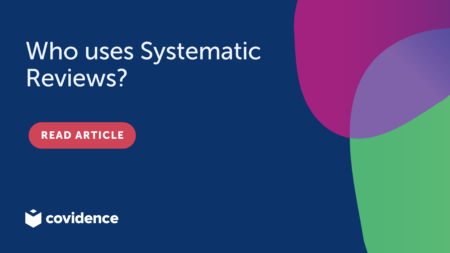
Who uses systematic reviews?
So if you think systematic reviews are just for the domain of Medical and Health Sciences – you are wrong. Researchers Researchers are looking at
Covidence website will be inaccessible as we upgrading our platform on Monday 23rd August at 10am AEST, / 2am CEST/1am BST (Sunday, 15th August 8pm EDT/5pm PDT)
Never miss an update, subscribe to our mailing list.
Find helpful resources, insights and product updates to help you finish your review faster, with (hopefully) less stress.
The blog is still new and to support our community, so if you’d like us to cover a specific topic, let us know via X (formerly Twitter) @covidence with #blogtopic

So if you think systematic reviews are just for the domain of Medical and Health Sciences – you are wrong. Researchers Researchers are looking at
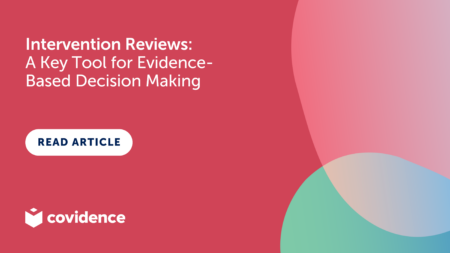
Intervention reviews play a crucial role in evaluating the effectiveness of specific treatments, programs, or approaches. But how do intervention reviews relate to systematic reviews?
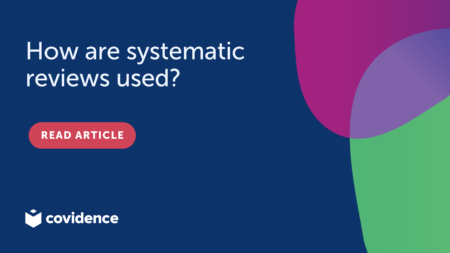
Systematic reviews are considered the most reliable source of evidence for decision making because they apply prespecified criteria to a synthesis of all the information
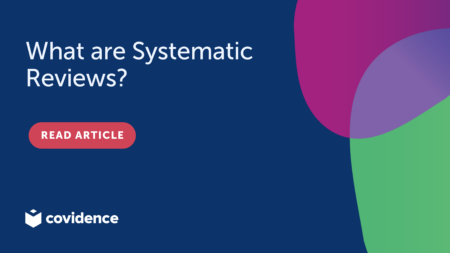
Systematic reviews are generally considered the most reliable source of evidence for decision making because they apply prespecified scientific methods to a synthesis of all
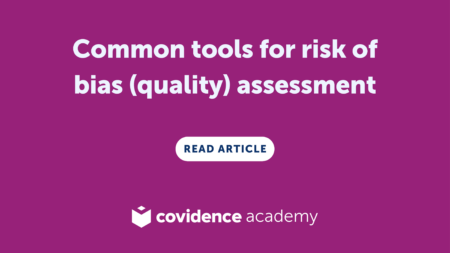
The assessment of risk of bias of the included studies is an important part of a systematic review. This evaluation contributes to the certainty or

A low Kappa score indicates a lack of agreement, beyond chance, between reviewers undertaking screening for example. This may result in a higher-than-expected number of

When developing your eligibility it is important that the entire team is clear on the criteria. Clarity on how eligibility criteria are applied is essential
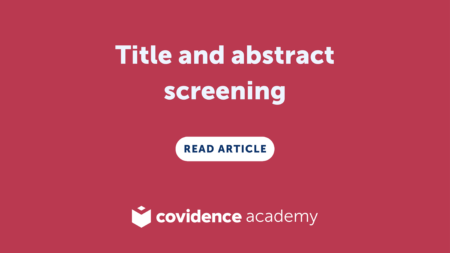
Title and abstract screening is the first crucial step to identify potentially relevant studies retrieved from databases or other sources based on the eligibility (inclusion

Registering the review protocol is critical to promote transparency, reduce bias and prevent research duplication. Protocol registration should be prospective. There are several important reasons
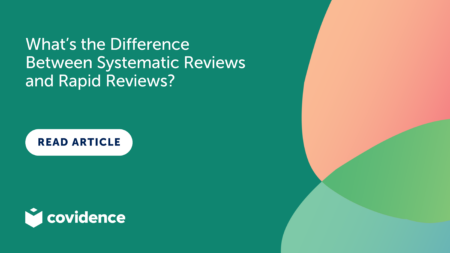
You’ve probably heard of systematic reviews and rapid reviews as both play a key role in helping us understand evidence, but they have different goals
By using our site you consent to our use of cookies to measure and improve our site’s performance. Please see our Privacy Policy for more information.